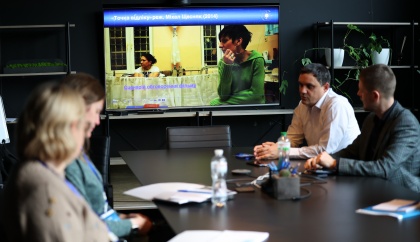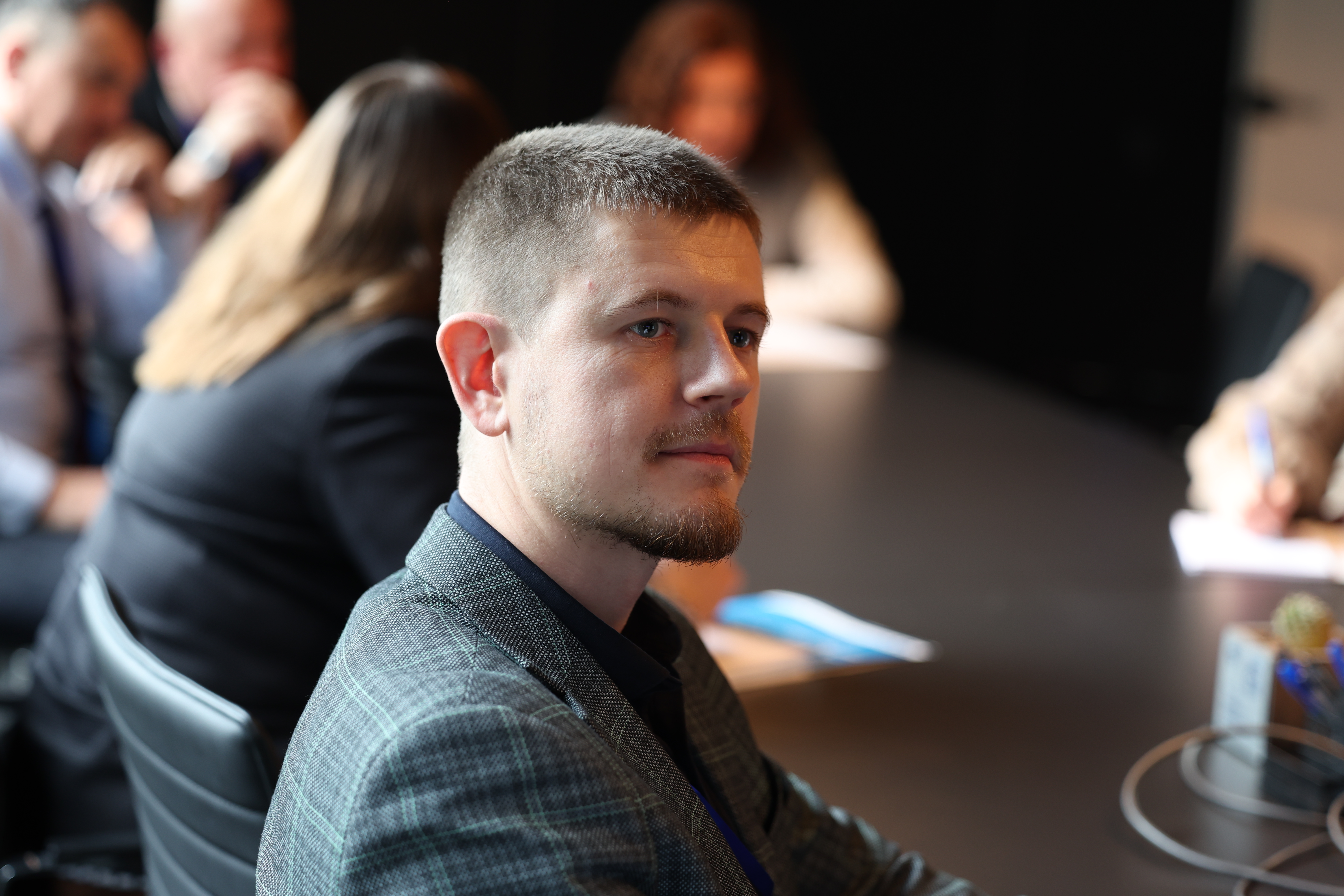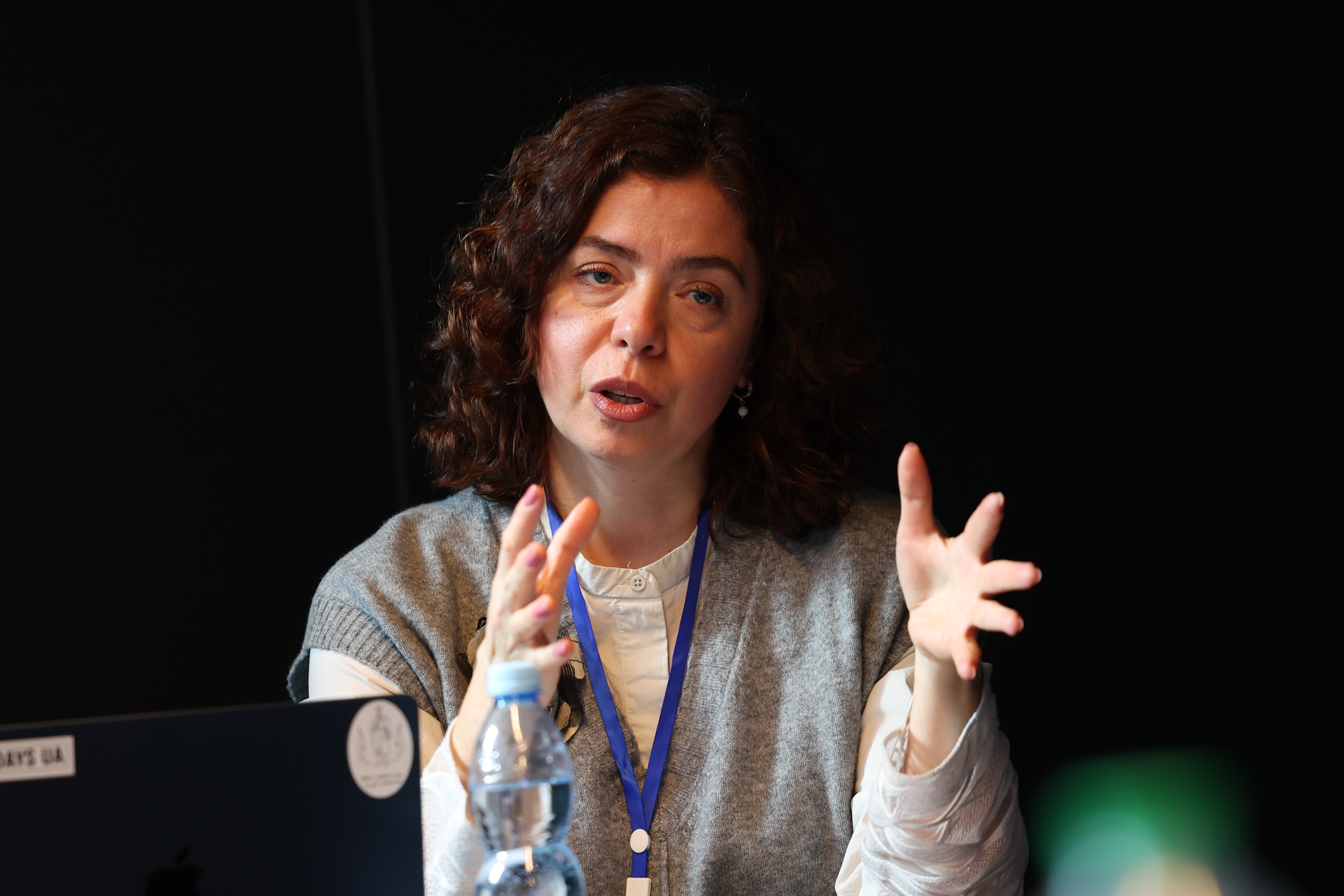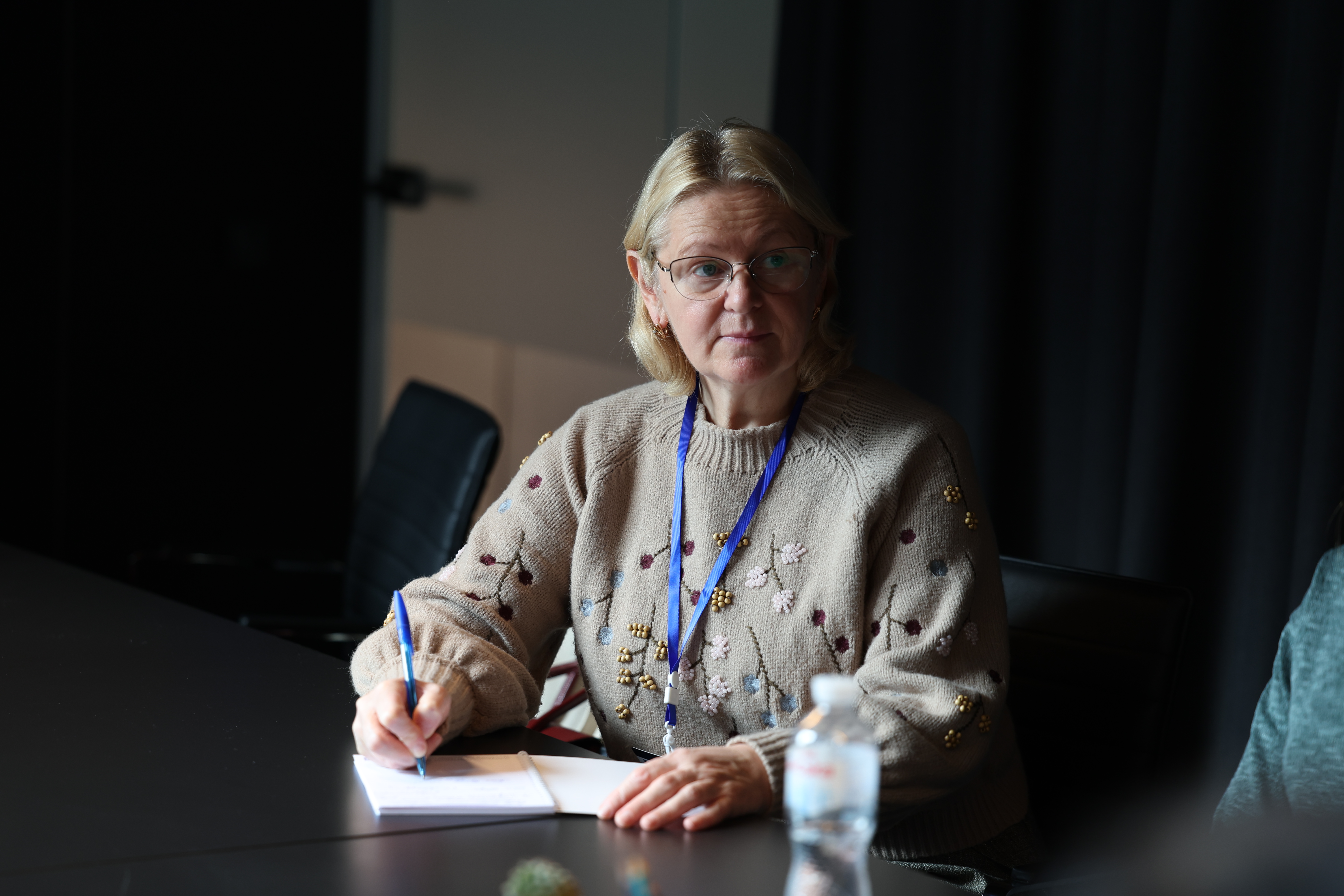
A special training session titled “Documentary films as tools for building trust and humanity in the field of criminal justice” was held during the event, bringing together representatives of the prosecution service, legal educators, and law enforcement officers. The organizers of the training emphasized that documentary films provide an opportunity not only to discuss systemic issues, but also look at human beings beyond the boundaries of the criminal justice system.

Participants of the DOCU/CLUB training
The organizers of the training emphasized that documentary films provide an opportunity not only to discuss systemic issues, but also look at human beings beyond the boundaries of the criminal justice system. “Documentary films help us see a person not only through the lens of their actions, but also through the context of their life and emotions that are familiar to us all. This helps criminal justice professionals develop a victim-centered approach in their work. It is crucial for us to inform a wide range of specialists about the opportunities provided by documentary films, which is why we initiated this training in partnership with the DOCU/CLUB Network,” said Oleh Duka, Deputy Director of the Prosecutors’ Training Center of Ukraine.
During the training, participants watched the documentary Starting Point by Polish director Michał Szcześniak. The film tells the story of a woman who serves a sentence for a serious crime and tries to find her place in society again. The screening was followed by a sincere and emotional discussion, marked by deep reflections on humanity, guilt, and the second chance in life.
Participants had an opportunity to learn in practice how documentary films can serve as educational, professional, and communicative tools. By modeling a film club discussion, engaging into a collective dialogue, and doing interactive exercises, they learned how to organize screenings effectively and ask questions that encourage reflection on empathy, trust, and responsibility.
They also familiarized themselves with the DOCU/CLUB Network’s methodological guidelines on creating film clubs and organizing events within criminal justice institutions — from selection of films and design of discussions to ensuring a safe environment for communication. Particular attention was dedicated to the ways in which documentary films can foster critical thinking, ethical sensitivity, and communication skills, all of which are essential for justice system professionals.

Olha Babchuk
“When prosecutors, probation officers, law faculty professors, and trainers watch a documentary film together, it is not merely an educational process. It is an opportunity to rethink one’s own role within the justice system while honing a sense of involvement and responsibility for how the state treats people who committed offense. Transformation begins with conversations like these — with a shift from formal punishment to a human-centered approach at every stage,” emphasized Olha Babchuk, Communications Manager of the DOCU/CLUB Network and facilitator of the training.
The cooperation between the DOCU/CLUB Network, the Prosecutors’ Training Center of Ukraine, and other criminal justice institutions is an example of implementation of democratic reforms within the criminal justice system. Documentaries are becoming a platform where professionals can openly and informally discuss trust, ethics, humanity, and dignity — values that form the “just” in justice.
After the film screening and discussion, participants shared their impressions. Many admitted that watching a documentary film was an unexpected yet profound experience that allowed them to view the work of the system through the lens of human stories.

Participants of the DOCU/CLUB training
“We are used to perceiving offenders through official documents, statistics, and case files. But seeing a person with all their struggle, pain, and hope changes your perspective. I believe such screenings are very important for our professional community,” shared a representative of the Cyber Police who participated in the training.
“I teach future lawyers, and this experience has been extremely valuable for me. I want my students to see how films can nurture compassion and a sense of responsibility. After all, law without humanity is merely a mechanism,” noted a lecturer from a legal educational institution.
The DOCU/CLUB Network thanks the Prosecutors’ Training Center of Ukraine for this fruitful cooperation and looks forward to continuing it in the future.
The development of the DOCU/CLUB Network is funded by the Embassy of Sweden in Ukraine, the National Endowment for Democracy (NED), and Fondation de France.
The opinions, conclusions, or recommendations are those of the authors and compilers of this publication and do not necessarily reflect the views of the governments or charitable organizations of these countries. The authors and compilers are solely responsible for the content of this publication.



